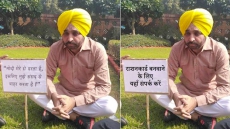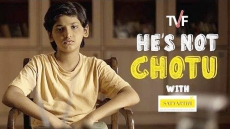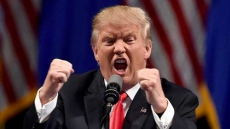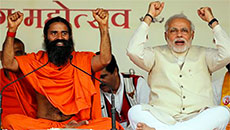Diwali, the festival of lights, has undergone a profound transformation in Canada in the last few decades. Once celebrated more intimately within the South Asian community, the festival today has blossomed into a grand, inclusive event embracing a multicultural spirit. This evolution is reflective of the shifting demographics, cultural integration, and vibrant South Asian diaspora that has made Canada home.
Rewinding to the past, the South Asian population in Canada was smaller and more concentrated around neighborhoods like Main Street in Vancouver. Back then, Diwali celebrations were close-knit and centered around community hubs and religious gatherings.
Sulakhan and Kulwinder Ark, who moved to Canada in 1974, recall, “There were fewer people from the South Asian community back then, and most of the Diwali celebrations, including fireworks and Bhangra, took place around Main Street in Vancouver. Now, it's all moved to Surrey.” As the community grew, Surrey became a new epicenter of South Asian culture, hosting large-scale Diwali events and drawing thousands.

With the rise of the South Asian diaspora in Canada, Diwali celebrations have grown beyond religious observance, becoming massive cultural events. Now, streets are adorned with festive lights, sweet shops are abuzz with customers, and large fairs attract both South Asian and non-South Asian attendees alike. The celebrations feature everything from traditional food stalls to vibrant Bhangra performances, offering a taste of home to those who have moved miles away.
Sarabjeet Kaur, who moved to Canada in 1989, reflects on how the celebrations have changed: "Back then, we only went to the Gurdwara Sahib and would invite one or two families over for dinner, maybe. There wasn't as much of a craze, and fewer sweet shops were around, too. Now, it's a totally different scene, with families and businesses participating in the festivities. Our community’s celebrations have grown significantly. It feels good that our cultural and religious days are now widely celebrated.” For families like hers, Diwali in those years was a quiet affair, marked by visits to the Gurdwara and small gatherings at home. Today, the scope has expanded dramatically.
The celebration of Diwali has also become more inclusive. With growing multiculturalism, Diwali is celebrated across schools and educational institutions in the Lower Mainland. This includes activities such as dance performances, sharing traditional foods, dressing up in ethnic wear, and coloring sheets featuring clay lamps and rangolis. Students of various backgrounds learn about the festival’s significance, making Diwali an educational experience as well as a cultural celebration. Such activities help younger generations understand the traditions, even if they are far from their ancestral roots.

At its core, Diwali remains a time for families to come together, reflect on the triumph of light over darkness, and spread joy. Even as the scale of celebrations has grown, the fundamental message of Diwali endures, adapting to the new contexts of Canadian life while retaining its deep cultural roots.

Moreover, the Canadian government, including Prime Ministers and other prominent officials, has increasingly recognized and celebrated Diwali through official statements and social media messages. By joining in the celebration of Diwali and other cultural festivities, government leaders emphasize the contribution of various communities in shaping Canada’s multicultural identity, reinforcing the nation as a place where diverse traditions are not only respected but also embraced.

The journey of Diwali from small gatherings to city-wide celebrations in Canada mirrors the broader story of the South Asian diaspora—one of resilience, cultural pride, and a willingness to share traditions with a wider audience. Today, Diwali not only serves as a celebration of light but also as a testament to how cultural traditions can thrive in a new land, contributing to Canada's rich multicultural tapestry.







